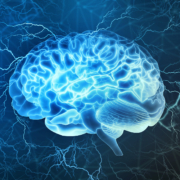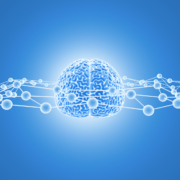The optimal way to feed your brain
If your parents ever urged you to eat the vegetables on your plate because they were “brain food,” mom and dad were ahead of their time.
In fact, the connection between what we eat and how those foods keep our brains healthy is a burgeoning and exciting area of research for scientists focused on how to prevent cognitive decline.
What we know already is that some diets are better than others for optimal brain aging, said Dr. Michelle Braun, a clinical neuropsychologist, brain health expert, and author of High-Octane Brain: 5 Science-Based Steps to Sharpen Your Memory and Reduce Your Risk of Alzheimer’s.
For example, the MIND diet, developed by researchers at Rush University in Chicago, is considered the gold standard for optimal brain health. A hybrid of the DASH (Dietary Approaches to Stop Hypertension) diet and the Mediterranean Diet, MIND is centered around minimizing intake of five brain “deflators,” or high saturated fat-filled options, such as fried foods, butter, cheese, red meat and pastries. These foods are said to increase brain atrophy or tissue shrinkage.
The chemical process that breaks down the foods we eat is key to understanding the connection between nutrition and brain health, Dr. Braun said.
“When you consume saturated fats, you’re taking in free radicals,” she said. “Free radicals have an electron in their outer shell and seek to stabilize themselves and steal electrons from the outer shell of healthy tissue. This process is associated with atrophy.”
Over time, this ongoing process contributes to the brain’s aging.
“What happens when people consume a diet rich in saturated fats is that they’re creating the grounds for those healthy tissues to be depleted by the unstable atoms they’re taking in,” Braun said.
This was born out by a study published in the Journal of Alzheimer’s Disease that found the MIND diet was associated with a slower cognitive decline and lower risk of Alzheimer’s disease. In addition, it was noted that the MIND diet might contribute to cognitive resilience in the elderly.
What’s most interesting is that the MIND diet was developed with a focus on improving brain health specifically (neither the DASH nor the Mediterranean diets were developed with that same mission, though both are considered longevity-boosting as well).
“The MIND diet was created explicitly to help with cognitive functioning,” Dr. Braun said. “DASH and Mediterranean happen to be helpful because they’re anti-inflammatory and therefore help with brain health, but that wasn’t their main purpose.”
The gut/brain connection
Everything we eat influences our microbiome, the collection of all the microbes (bacteria, fungi, viruses and their genes) that live in our body. This, in turn, affects our brains, said Isabel Smith, a registered dietitian in New York City.
“Therefore, the superhighway that connects the brain and the gut—influencing mood, cognition, focus and more (including potentially neurodegenerative diseases)—is a critical connection,” she said.
Just as food nourishes your heart via cellular pathways, it also nourishes your brain once it has been broken down through the gastrointestinal tract, added Dr. Braun.
“After that breakdown, your blood absorbs nutrients and sends them around the body,” she said. “Blood flow essentially bathes our neurons with the nutrients we need.”
The National Institute on Aging recently published some information about the connection between diet and Alzheimer’s Disease. Another important connection between what we eat and how our brains age has to do with the very structure of our brains.
“We separate our overall health and our brain health, but that doesn’t make sense,” said Dr. Kenneth Koncilja, a geriatrician at the Cleveland Clinic. “In reality, the brain has a really big vascular component and is more susceptible to vascular risk factors than the heart.”
For example, while our brains weigh a mere two to three percent of our total body weight, our brains get 20 percent of our blood flow.
“The brain has so many tiny blood vessels that makes it very susceptible to the stresses of the modern American diet,” he said. “This diet isn’t the best for promoting healthy blood vessels and healthy blood flow.”
Thanks to advances in brain imaging, Dr. Koncilja said researchers now have a better understanding of the connection between the brain’s complex vascular system and the way we nourish it through the foods we eat.
“In the last five to 10 years, as brain imaging technology has caught up, we’ve started realizing the true impact of microvascular disease,” he said. “We always knew good nutrition was critical to overall health, but now we’re seeing more science to back up the fact that eating healthfully can even potentially prevent brain plaque and the aging of the brain’s blood vessels themselves.”
Why eating well—and skipping the supplements—matters
While advertising campaigns may hype the promise of memory- or brain-boosting supplements, these products are unlikely to have peer-reviewed research to back up their claims, Dr. Braun said.
“We know supplements aren’t indicated for brain health,” she said. “Most people are surprised to learn that they’re only useful if someone is nutrient deficient—and that is incredibly rare.”
To best feed your brain, look for foods featuring key nutrients such as including omega-3 fatty acids found in fatty fish, chia seeds, flaxseed and walnuts, all of which specifically feed your brain cell structures, Smith said.
“The brain also needs antioxidants and polyphenols from plants to help combat oxidative stress and inflammation,” she said. “A diet rich in antioxidants, such as root vegetables, beans and grains, healthy fats and other brain-boosting nutrients can support cognitive functions like memory, focus and problem-solving skills.”
Conversely, a diet high in refined sugars and unhealthy fats will do the opposite.
“We know a diet like this can impair cognitive function and contribute to cognitive decline,” Smith said.
There has even been research into the effect of intermittent fasting on healthy aging. While there is some data to suggest that this strategy can improve brain resilience and brain health, most experts agree that more research is needed.
“There’s no consistent support for intermittent fasting and brain health, although sometimes the caloric restriction associated with it can reduce weight and thus indirectly improve cardiovascular health and then brain health secondarily,” Dr. Braun said. “It’s a bit of an indirect connection, but nothing strong outside of that association.”
In the end, educating ourselves on how our brains process the foods we eat is critical to helping our brains stay as healthy—and agile—as possible.
“We find that if people understand the cellular exchange that is going on in our brains, then they are excited and motivated to make changes—and eat better,” Dr. Braun said.
This article has been factchecked. For more about that process, click here.









